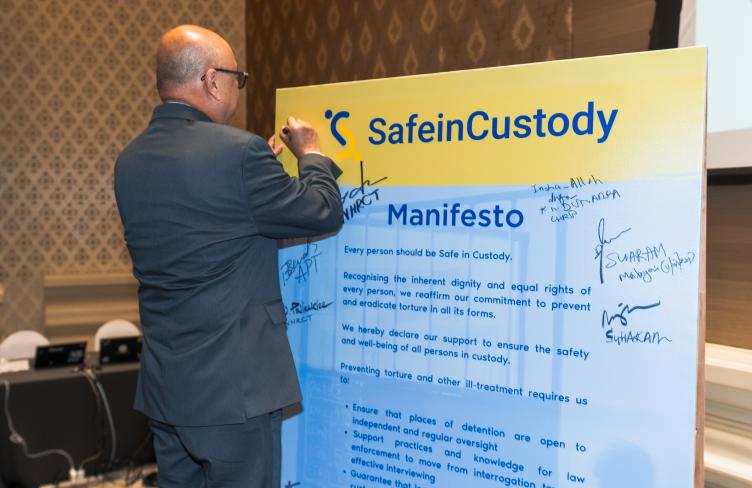
Practised on average 680 times every day in Brazil by the Courts of Justice, custody hearings are now a reality in the Brazilian criminal justice system. Their purpose is to bring every person before a judge within a maximum of 24 hours after their arrest. As of the 7th of January 2023, the official guidance is that these hearings should be once again held in person in courts all over the country.
However, the lack of public information regarding the operational aspects of such hearings by the Courts of Justice, including the number of courts that conduct hearings virtually, has made it difficult for society and the justice system itself to make informed decisions regarding the next steps in the implementation of related policies and judicial procedures.
At the Association for the Prevention of Torture (APT), we have been closely monitoring these developments, understanding that behind an apparently simple judicial practice, the respect for fundamental rights and the structuring of a complex network of actors, services, and workflows are at stake.
The data we collected between July and September of 2022 on our recently launched Observa Custódia platform reveals that, despite being a judicial procedure, custody hearings take place outside the Courts of Justice in at least 26% of Brazilian state capitals. In other words, they are conducted in a place provided by the prison administration secretariats or in civil police headquarters.
According to data from Observa Custódia, hearings were being held virtually in 19 Brazilian state capitals. The legal grounds for holding these virtual hearings are questionable as the state of health emergency caused by Covid-19 was no longer in effect at the time of the survey.
These factors combined tend to influence key safeguards such as access of family members to the hearings, the quality of the procedural act, and even the presumption of innocence of the person in custody. For example, we identified that in 13 capitals (48%) there is the practice of keeping the person handcuffed during the hearing, while in six capitals (22%) the person is presented wearing a prison uniform. In relation to detecting/identifying potential abuses committed at the moment of detention, Observa Custódia reveals that, in spite of there being official guidance for performing corpus delicti exams before the hearing, the expert result report usually does not arrive in time to be analysed by the authorities during the hearing in nine capitals (39%).
This mapping demonstrates that, along with the lack of standardisation in its realisation around the country, normative standards have been systematically disregarded.
As the deadline set by the National Council of Justice (CNJ) for the return to the in-person format expires, the lack of data on the operationalisation of custody hearings once again brings to light the fragility with which judicial and human rights policies are implemented and evaluated in the country, where vulnerability in the first hours after arrest and violence against detainees, mostly black, poor and residents of the suburbs, are still a persistent reality.
As this important instrument to control the legality of detention reaches its first decade, it is necessary to deepen the debate on custody hearings, unveiling data not only about they are conducted by the courts. Through transparency and civilian oversight, with tools such as Observa Custódia, we hope to fill gaps and, more than that, advance the respect for normative standards, strengthen good practices and promote effective access to justice and accountability in the justice system.
This opinion article was first published in Folha de S.Paulo and was written by Fabio de Almeida Cascardo, APT's Consultant in Brazil, and Sylvia Diniz Dias, Senior Legal Adviser and APT's Representative in Brazil.


